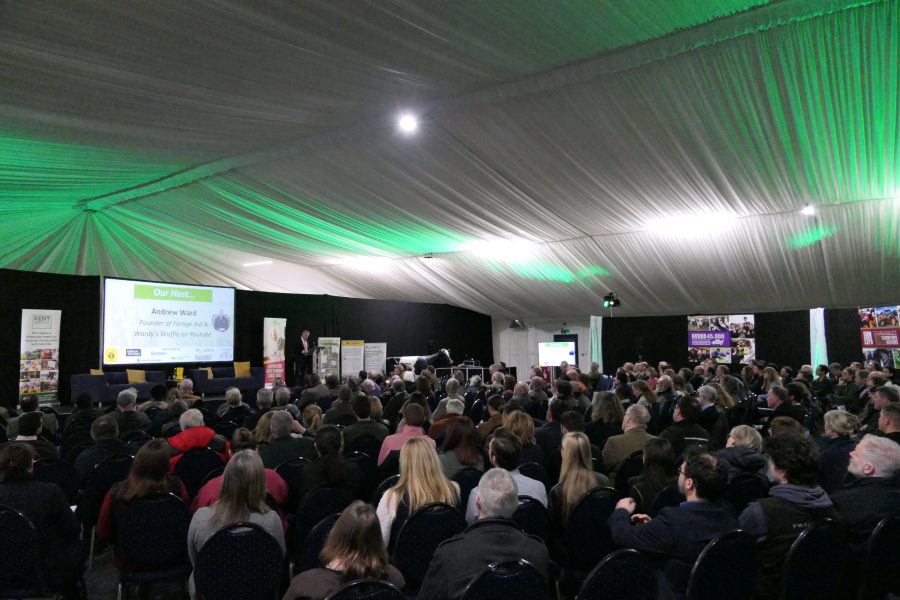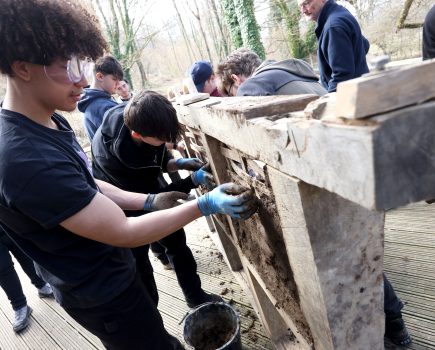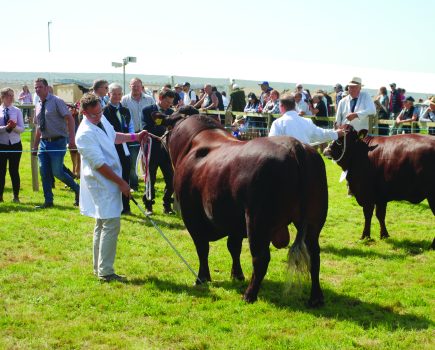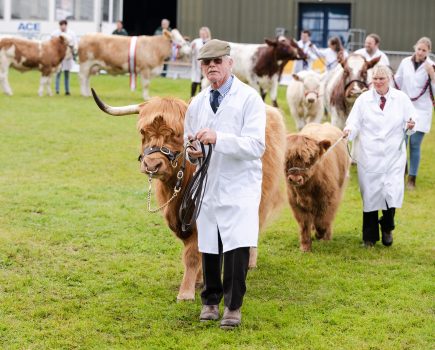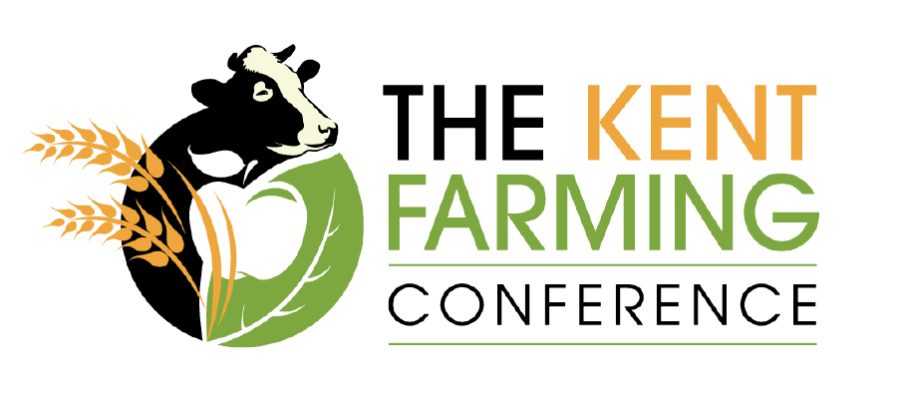
A Q&A session that felt as if it could have gone on late into the evening was a clear indication that the line-up of speakers at the Kent Farming Conference 2025 was spot on.
Even the thought of the splendid post-conference refreshments lined up by organisers the Kent County Agricultural Society wasn’t enough to stop the fully engaged audience lining up to put questions to the well-selected panel.
In response, the expert panel, made up of host Andrew “Wardy” Ward MBE, Silas Hedley-Lawrence and Sir Peter Kendall, responded with enthusiasm and good humour to a range of questions that explored everything from regenerative agriculture – the advertised theme of the debate – to, inevitably, the budget’s well-publicised tax plans.
For the Q&A session, the speakers were joined by local farmers Doug Wanstall and Peter Bromley, making for a lively debate in response to the topic: A sector divided: Is regenerative farming the way forward?
The carefully chosen speakers guaranteed an interesting response to the question, with Silas’ almost evangelical approach to the benefits of regenerative farming contrasting to a greater or lesser extent with both Andrew’s and Sir Peter’s more measured approach and Peter admitting to being “probably the least regen person in the room”.
It made for a fascinating evening at the Kent Showground at Detling and left the audience with plenty to think about on topics that included the Environment Agency’s response to keeping waterways clear and the threat of climate change, a subject on which host Andrew revealed himself to be somewhat cynical.
In his opening address to what was the fourth annual conference of its kind, the Lincolnshire-based farmer and founder of Forage Aid said that he had stopped ploughing 22 years ago, farmed sympathetically, had planted wildflower meadows and worked to avoid soil erosion.
But he said that after a seven-year trial in which he had grown the same crop on two adjacent fields, one conventionally and one using direct drilling and cover crops, he had found the return on the ‘regen’ plot to be £182 per hectare worse than the other when averaged across the period.
Andrew also raised eyebrows on the panel when he said that having kept records of rainfall across the years, the wettest weather he had seen had been back in 2002. The reason for flooding, he suggested, was not more rain but the result of the Environment Agency neglecting proper waterway maintenance.
While the audience murmured its agreement regarding what he saw as the agency’s failings, it was a comment that later prompted Sir Peter to stress in response that “climate change is the most scary thing”, adding: “Andrew is denying the science.”
Andrew was followed by the first of the two speakers, agroecological farmer, coach and consultant Silas, who has a decade of experience in science-led regenerative farming with an emphasis on soil health as the basis for higher yields, lower input costs and greater biodiversity.
In a wide-ranging and comprehensive presentation, Silas made a convincing case for ‘regen ag’ but also stressed that the aim was not to be prescriptive but to give farmers a “wider range of tools” which they could use to make their own systems work better.
The focus on soil health, allowing better root penetration and water storage, improving mineral content and microbiology and boosting aeration, was persuasive, as was his call for farmers to “work with nature, don’t try to beat it”. It was, he said “about collaboration, not competition, abundance not scarcity”.
In answer to the question posed by the conference title, he said the sector was not divided. “It’s not a question of right or wrong,” he said, before highlighting the need to move away from a dependency on man-made chemicals.
On new initiatives, Silas said that “teaming up” with biology and nature was also good for carbon storage, water retention and other environmental ‘goodies’, allowing farmers to benefit from the new opportunities offered by such things as biodiversity net gain and the sustainable farming incentive.
Sir Peter, fifth-generation arable farmer and former president of the NFU, now runs a broiler unit that is heavily dependent on renewable energy and is a keen advocate of circular systems and of changing farming’s image to one that is “innovative, exciting and central to facing global challenges”. He began, though, by stressing that he “likes to grow a big crop of wheat”.
Also a former chair of the Agriculture and Horticulture Development Board, Sir Peter added to his climate change warning by stressing also that the country needed to produce more food to help feed a growing world population but also had to lower its environmental footprint and improve biodiversity. The UK should not be dependent on imported food, he stressed.
Sir Peter pointed out, though, that there were challenges for those on land like his own in East Bedfordshire, including the difficulty of following regenerative principles on a large scale, dealing with heavy, poorly drained soils and tackling blackgrass. Rotational ploughing, he said, had worked well after he tried not ploughing for ten years but found that “the blackgrass was dreadful”.
Stressing that farmers needed to be persuaded by economic analysis as well as ecological analysis and “can’t afford to gamble”, he nonetheless concluded that “doing nothing is not an option”.
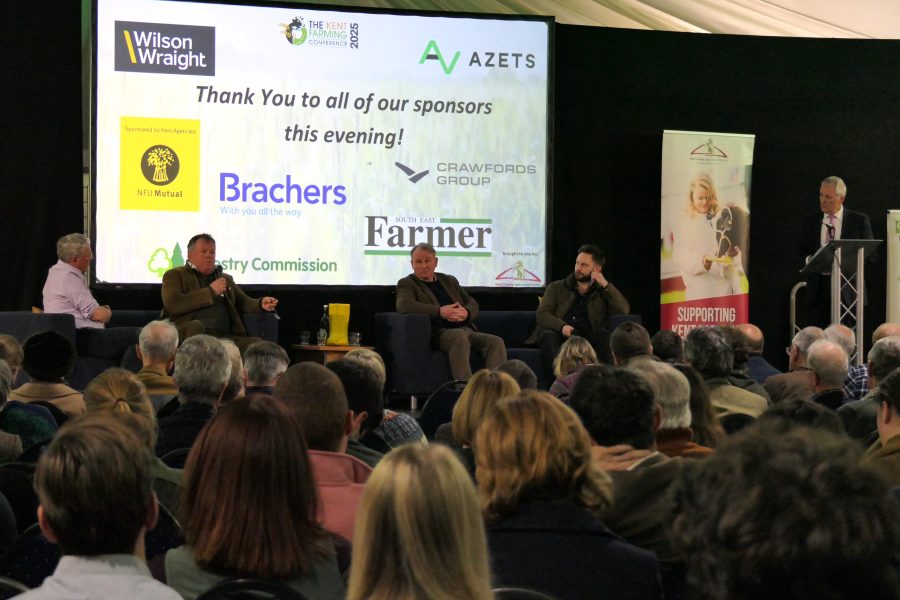
For more like this, sign up for the FREE South East Farmer e-newsletter here and receive all the latest farming news, reviews and insight straight to your inbox.

